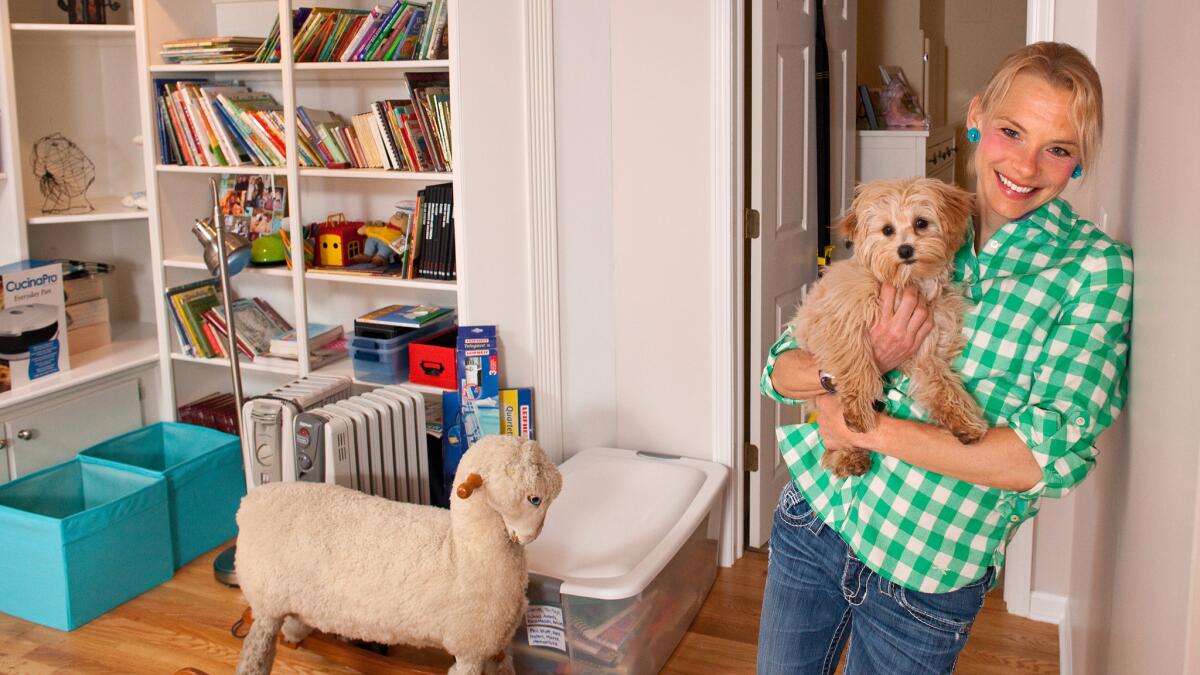More young adults live with parents than partners, a first

Many of America’s young adults appear to be in no hurry to move out of their old bedrooms.
For the first time on record, living with parents is now the most common arrangement for people ages 18 to 34, an analysis of census data by the Pew Research Center has found.
Nearly one-third of millennials live with their parents, slightly more than the proportion who live with a spouse or partner. It’s the first time that living at home has outpaced living with a spouse for this age group since such record-keeping began in 1880.
The remaining young adults are living alone, with other relatives, in college dorms, as roommates or under other circumstances.
The sharp shift reflects a long-running decline in marriage, amplified by the economic upheavals of the Great Recession. The trend has been particularly evident among Americans who lack a college degree.
The pattern may be a contributing factor in the sluggish growth of the U.S. economy, which depends heavily on consumer spending. With more young people living with their parents rather than on their own, fewer people need to buy appliances, furniture or cable subscriptions. The recovery from the 2008-09 recession has also been hobbled by historically low levels of home construction and home ownership.
As recently as 2000, nearly 43% of young adults ages 18 to 34 were married or living with a partner. By 2014, that proportion was just 31.6%.
In 2000, only 23% of young adults were living with parents. In 2014, the figure reached 32.1%.
The proportion of young adults now living with their parents is similar to the proportions that prevailed from 1880 through 1940, when the figure peaked, Pew found. Yet in those decades, the most common arrangement for young adults was living with a spouse rather than with parents.
“We’ve simply got a lot more singles,” said Richard Fry, lead author of the report and a senior economist at the Pew Research Center. “They’re the group much more likely to live with their parents.”
The typical U.S. woman now marries at 27.1 years old, the typical man at 29.2, according to Census data. That’s up from record lows of 20.1 for women and 22.5 for men in 1956.
“They’re concentrating more on school, careers and work and less focused on forming new families, spouses or partners and children,” Fry said of the millennials.
The shift may also be disrupting the housing market. One mystery that has confounded analysts since housing began to recover in 2012 is why there aren’t more homes for sale. The lack of available houses has driven up prices and made it less affordable for many would-be purchasers to buy homes.
Nela Richardson, chief economist at real estate brokerage Redfin, says one explanation for the sparse supply is that many baby boomers aren’t able to sell their family homes and downsize for retirement because they still have adult children living with them. Redfin recently surveyed homeowners ages 55 to 64 and found that one-fifth still have adult children at home.
“Because there are so many boomers and so many millennials, it’s having a big effect on the housing market,” Richardson said.
Among young men, declining employment and falling wages are another factor keeping many of today’s 18-to-34-year-olds unmarried, Fry said. The share of young men with jobs fell to 71% in 2014, the report found, from 84% in 1960 — the year when the proportion of young adults living outside the home peaked.
Incomes have fallen as well: Wages, adjusted for inflation, plunged 34% for the typical young man from 2000 to 2014.
Other factors contributing to the trend of living with parents range from rising apartment rents to heavy student-debt loads to longer periods in college.
Many analysts had expected that as the economy improved, younger adults would increasingly move out on their own. That hasn’t happened. Jed Kolko, a senior fellow at the Terner Center for Housing Innovation at the University of California, Berkeley, says soaring rents are discouraging some millennials from leaving their parents’ homes.
Kolko’s research, based on more recent data, has found that the share of young adults living with their parents in the first quarter of 2016 was essentially unchanged from two years earlier.
Median rents nationwide were surging at a 6% annual pace as recently as August, though they have slowed since. In fast-growing cities like San Francisco, Denver, and Portland, Ore., rents rose last year at a double-digit pace.
Heavier student debt loads have sent more young people back to their parents’ nests, according to research last year by economists at the Federal Reserve Bank of New York.
Other economists aren’t convinced that student debt plays a dominant role. They note that the proportion of young adults without college degrees who live with parents is especially high: Nearly 39% of those with only a high school degree were living with a parent in 2014, up from around 26% in 2000.
That compares with just 19% of young adult college grads living at home in 2014. That figure, though, is up sharply from 11% in 2000.
MORE ON HOUSING:
Home sales rise in April — thanks mainly to the Midwest
Labor unions, environmentalists are biggest opponents of Gov. Brown’s affordable housing plan
Assembly Democrats cut affordable housing request in half to $650 million
More to Read
Inside the business of entertainment
The Wide Shot brings you news, analysis and insights on everything from streaming wars to production — and what it all means for the future.
You may occasionally receive promotional content from the Los Angeles Times.










